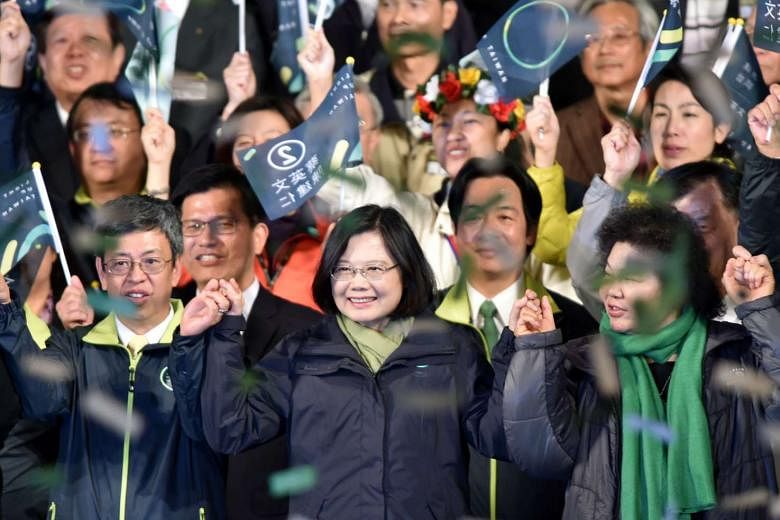In its editorial on Feb 25, the paper urges the new government to be pragmatic in its approach to dealing with China.
Historians and economists alike started the 21st century off by calling it the "Chinese century", though Oswald Spangler had already said as much very early in the 20th century in his "The Decline of the West".
The expression is a neologism suggesting that this century will be dominated by the People's Republic of China, similar to how "the American century" refers to the 20th century and "Pax Britannica" to the 19th.
The phrase is used particularly in the assertion that the Chinese economy will overtake that of the United States as the largest national economy in the world.
Of course, there are some who refute this neologism, but the developments after the Vietnam War in the middle of the last century, the recent failure by President Barack Obama to rally all South-east Asian nations behind the United States to help contain the People's Republic, as well as the United Kingdom's vote on possibly leaving the European Union, all signal the end of Pax Americana.
One interesting point here is that Spangler made the prediction before the Chinese Revolution of 1911.
China at that time was still ruled by the Manchu and considered semi-colonised by the West and Japan, which started colonizing Taiwan after its secession from Qing China following the Sino-Japanese War of 1894 to 1895 and defeated Tsarist Russia in the Russo-Japanese War of 1904 to 1905.
Few believed Spangler's prediction would be borne out.
Spangler's prediction is based on Arnold Toynbee's cyclical history of Chinese civilisation.
Chinese dynasties rose and fell.
A dynasty was created or born, reached its apex, and then came to an end or died to complete its cycle.
But Chinese civilisation has progressed as the world's oldest continuing one for more than 42 centuries simply because another dynastic cycle has always followed each toppled dynasty.
The Great Qing Empire was toppled in the 1911 Chinese Revolution, and the Republic of China was created in 1912 to provide a catalyst for the founding of the People's Republic of China to start another cycle that is expected to culminate around the middle of this century, according to the neologisms.
More than reasonably likely, if one believes that history repeats itself.
Well, at the very least, China was the world's largest economy in the 17th and 18th centuries.
Its gross domestic product exceeded that of the United State as measured by purchasing power in 2014.
Statistics released by the International Monetary Fund in 2014 showed China's purchasing power GDP hit US$17.6 trillion in that year versus US$17.4 trillion in the United States, and China will certainly expand its lead over the United States in the coming years.
It does not stand to reason for the United States to reassert Pax Americana to contain the People's Republic on the rise, simply because it is uncontainable.
It behooves Washington to emulate London who formally ended the Pax Britannica in 1968 by announcing that the United Kingdom would withdraw all troops from the East of Suez in 1971 after its fiasco in the Suez Crisis of 1956.
Mr Obama can't and won't do so, but his successor may have to scrap Washington's current "shift to Asia" policy to concentrate on the solution of the problems of the Islamic State in Iraq and Syria that Washington has helped to create.
For Taiwan, it is incumbent on the new administration of President-elect Tsai Ing-wen, which will be inaugurated on May 20, to devise an acceptable compromise on the "1992 Consensus" in order just to survive as a viable economy by not antagonising the People's Republic on which the Republic of China is relying increasingly heavily for economic growth.
The consensus is an unsigned modus vivendi, known in Taiwan as the "one China with different interpretations" principle.
It is a legal basis for the peaceful development of relations between Taiwan and China, as well as the sine qua non Beijing lays down for cross-strait interchange.
Ms Tsai has been equivocal in her stance on the consensus. Faced with the modus vivendi to maintain the status quo across the Taiwan Strait, the new president needs to find a way to establish a bridge with Beijing on the issue.
--------------------------------------------
The China Post is a member of The Straits Times media partner Asia News Network, an alliance of 22 newspapers.

